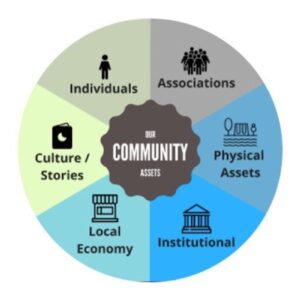
A coalition of nonprofits and municipal, county, and tribal governments has challenged the Trump administration’s attempt to claw back $3 billion in environmental justice grants.
The environmental legal advocacy group Earthjustice sued the Environmental Protection Agency in a class action lawsuit filed in US District Court in Washington, DC, accusing the EPA of unconstitutionally freezing grants awarded under the Environmental and Climate Justice Program, part of former President Biden’s Inflation Reduction Act of 2022.
“The EPA unilaterally decided to eliminate this program that was statutorily created by Congress and they were directed to implement. Because of different policy priorities, they decided to ignore that direction,” Hana Vizcarra, a senior attorney with Earthjustice, told NPQ.
However, last week the presiding judge, Richard Leon, a conservative judge appointed by George W. Bush, dismissed the case. In a statement issued in response to the decision, Vizcarra stated:
We are disappointed in the court’s ruling, but we will continue to fight for communities across the country that relied on this EPA program to reduce pollution, increase climate resilience, and build capacity to tackle environmental harms. The legal team is considering next steps.
The grant program has funded or was slated to fund more than 350 projects across the country, including pollution monitoring, tree planting, lead abatement, and electrifying school bus fleets.
Infrastructure, Not Ideology
The block grant program was backed by advocates of environmental justice, the effort to direct resources to poor communities, often communities of color that have disproportionately suffered harmful effects from industry. The program was also meant to help communities mitigate the impacts of climate change.
EPA Administrator Lee Zeldin pulled the plug on the program in the early days of the Trump administration amid a funding freeze widely targeting policies accused of supporting “Marxist equity, transgenderism, and green new deal social engineering.”
“The lived experience of Americans is that the weather is getting worse and more severe.”
In an editorial in the Wall Street Journal in March, Zeldin summarized the Trump administration’s environmental agenda as “a dagger through the heart of climate change religion.” The EPA recently announced that it would no longer support the scientific determination that greenhouse gases threaten public health—a fact that undergirds most governmental efforts to combat global warming.
For many of the environmental justice grant recipients, the notion that they’re somehow advancing radical leftist ideology is off-base to say the least.
“We saw applications for everything from supporting youth farmers in Connecticut…all the way to working with communities to remove lead pipes or install new sewage systems,” said Rebecca Kaduru, the president of the Institute for Sustainable Communities (ISC), which is one of the plaintiffs in the suit.
The ISC had been awarded a grant aimed at broadening the pool of applicants for the environmental justice program. Kaduru explained that the concept doesn’t just apply to urban areas but also rural communities that may be grappling with severe weather.
She pointed to recent deadly flooding in Kerr County, TX, which is believed to have been exacerbated by the lack of an emergency flood warning system.
“I think the lived experience of Americans is that the weather is getting worse and more severe, and I think we’ve known for years that the bigger institutions like FEMA are not good at getting dollars into the hands of the individual homeowner,” Kaduru said.
The array of plaintiffs in the Earthjustice suit reflects the broad scope of the program, ranging from nonprofits like Air Alliance Houston, which sought to foster greater involvement in permitting for local petrochemical sites that make the region among the most polluted in the country; to county and municipal governments like the village of Kipnuk, AK, which sought to construct an erosion barrier to protect against flooding due to melting permafrost.
“Without this barrier, we may be forced to relocate our entire village.”
“I pray that we can get the funding for the erosion barrier reinstated so that we can protect our buildings, our homes, and our way of life. Without this barrier, we may be forced to relocate our entire village,” Rayna Paul, Kipnuk’s environmental director, said in a statement.
“People who are minorities and sometimes lower income don’t feel like they have as much access to decision-making anyway….And so all of those trends together have just concentrated pollution sources in certain neighborhoods,” said Houston Air Alliance Executive Director Jennifer Hadayia. “And if the community doesn’t even know about it, well, then what can they do except continue to breathe polluted air?”
A Long Line of Legal Cases
The plaintiffs in Earthjustice’s lawsuit are in good company. The Trump administration has frozen or canceled grants and contracts to scores of nonprofits, community organizations, and local agencies.
A slew of cases are making their way through the courts challenging the constitutionality of the Trump administration’s effort to claw back funding for programs already authorized by Congress, a practice known as impoundment.
The Supreme Court has not definitively decided on any of the cases, although it granted a narrow victory to the administration in April when it ruled 5-4 that the Department of Education could continue to withhold grants for DEI-based programs while legal challenges were litigated.
The EPA in mid-July sought to dismiss the Earthjustice suit on the grounds that the funding was now “moot” because the recently enacted budget rescinded all funding for the environmental grant program. In addition, the agency argued the district court lacked jurisdiction to hear the case.














